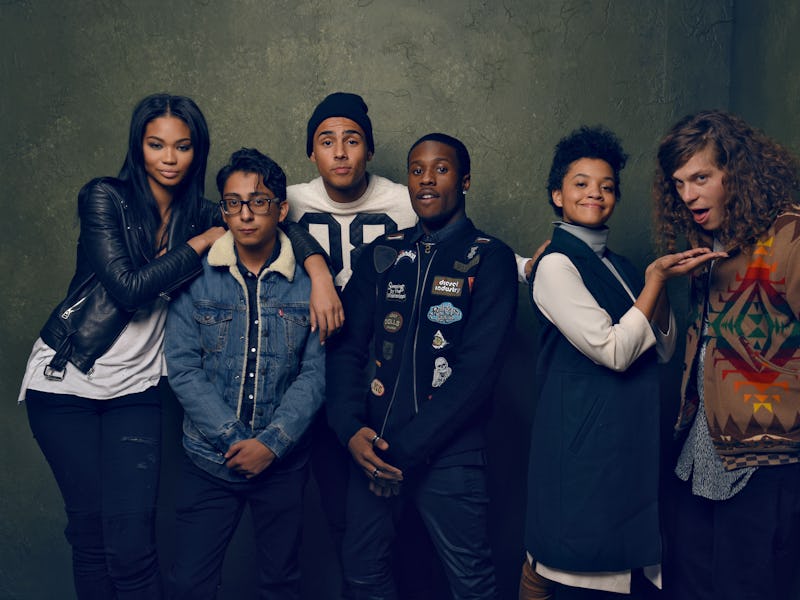Teenage coming-of-age stories must give the hero an arc. Progression from point A to point B, a journey, or just any sense the story to show the main character achieved greater maturity. Dope, the already acclaimed film by Rick Famuyiwa, provides a journey for Malcolm — played by Shameik Moore —but Malcolm appears in the film fully-formed and vexed by this fact. As a love interest reminds him at the end of the movie, he’s “complicated”. A black kid who likes ‘90s hip-hop, contemporary indie rock, and wants to go to Harvard doesn’t match with the harsh neighborhood he desperately wants to escape.
Malcolm, along with his friends Diggy (Kiersey Clemons) and Jib (Tony Revolori), are self-identified people of color nerds living in one of the worst neighborhoods in Los Angeles. Malcolm dreams of attending Harvard, but needs to overcome his surroundings to make that dream happen. Hilarious amongst themselves, Malcolm and his friends are at the bottom of the social food chain and in a neighborhood that involves navigation between school bullies, gangs, and drug dealers.
Their unique identity becomes harder to maintain once Malcolm discovers after a night club shootout that his book bag got crammed full of illegal MDMDA, which he must sell for the safety of family and friends. The film never gives these kids a real moment to enjoy their monetary gains. There are a couple party scenes, but one ends in a shootout and another ends up remembered through a montage of social media as they blacked out before the party really got started.
A lot of attention surrounding Dope centered on its celebrity cameos. A$AP Rocky is the playboy drug dealer, Dom, whose rash decision in a club shootout sparks the entire film and is performed with a charism that matches Rocky’s on record charms. Zoe Kravitz plays Nakia, Malcolm’s main love interest, who shares Malcolm’s dream of escape their neighborhood. Tyga appears a high rolling drug dealer; lesser known rappers Kap G and Vince Staples make fun cameos for the Odd Future generation ready to laugh at multiple Casey Veggies jokes. Even if there are jokes about how no one listens to CDs, the soundtrack executively produced by Pharrell and full of ‘80s and ‘90s rap classics appeals to the various generations of rap fans that claim hip-hop culture as their own.
In the opening monologue, Malcolm describes all of the things that code as “white”, which happens to be all of the stuff that his friends enjoy. What makes Malcolm and his crew such an easy group to cheer for is that they doesn’t wrestle with such lines of white or black. Malcolm sees those lines and just keeps it pushing. The film laughs at the way white people want to encroach on blackness, as a way of showing a lack of confidence in their identity. Malcolm throughout the film struggles to write his college essay for Harvard but once he nails it, it’s not because he’s figured out what Harvard might want, but instead he finally gets how to present himself to the rest of the world. Malcolm isn’t of the generation to yell “I’m Black and I’m Proud” or “I’m a Nerd,” he simply states his name.
